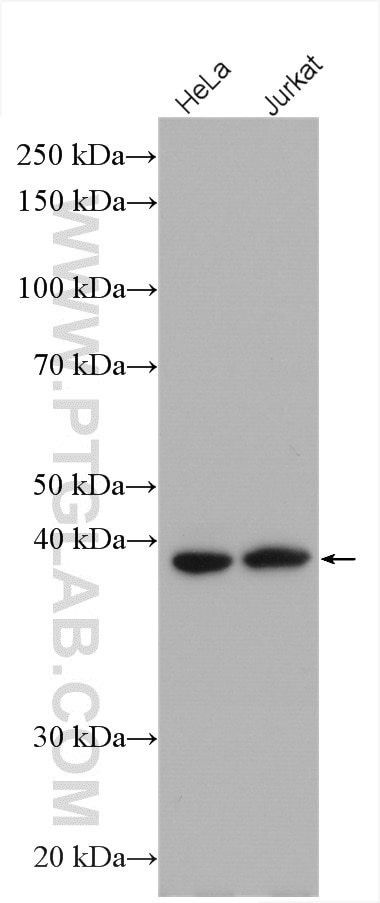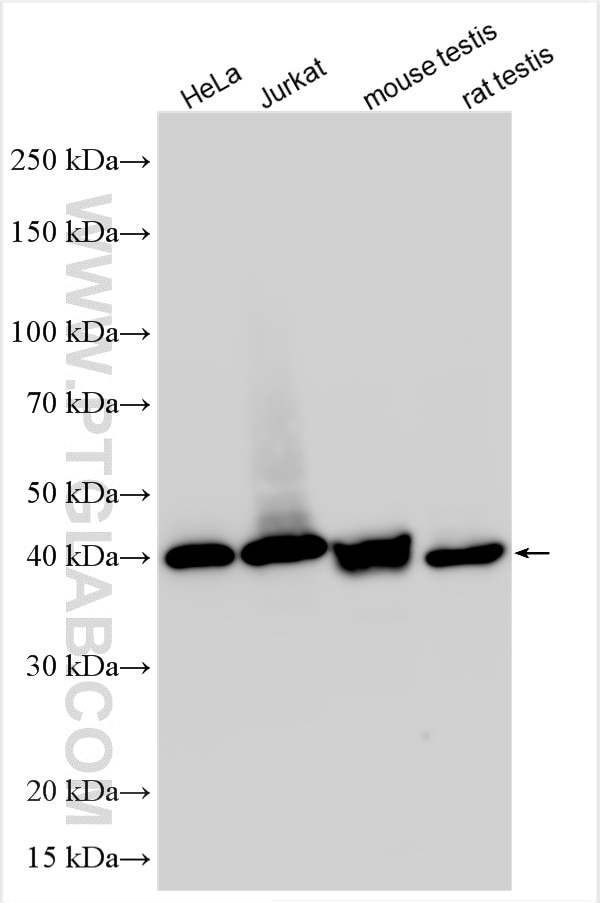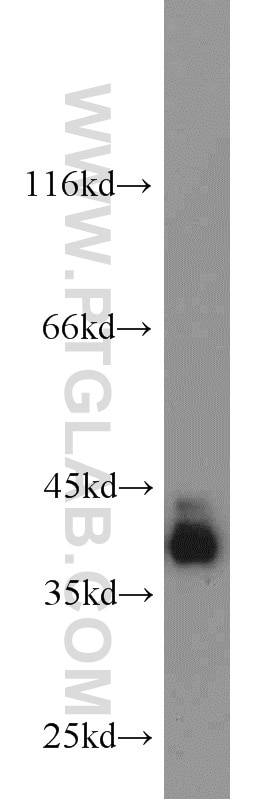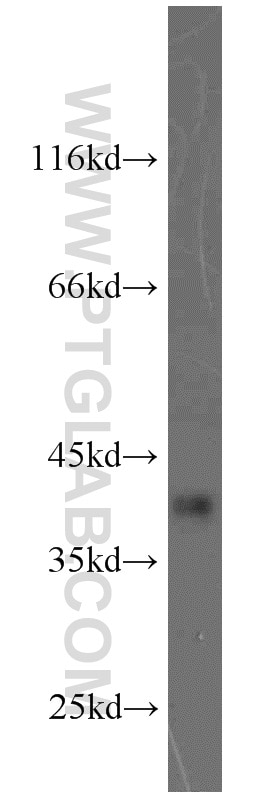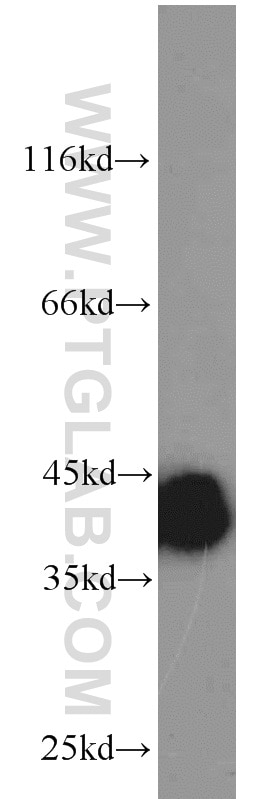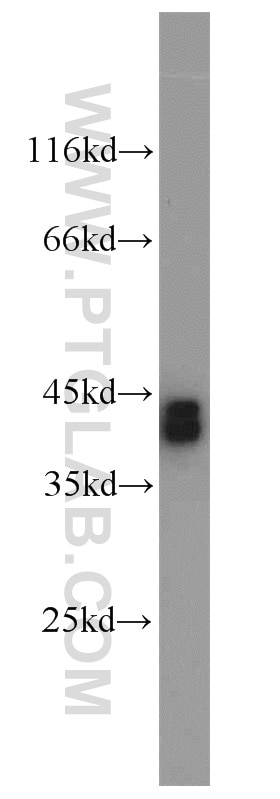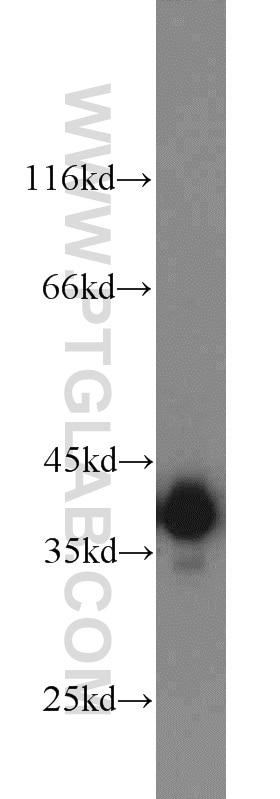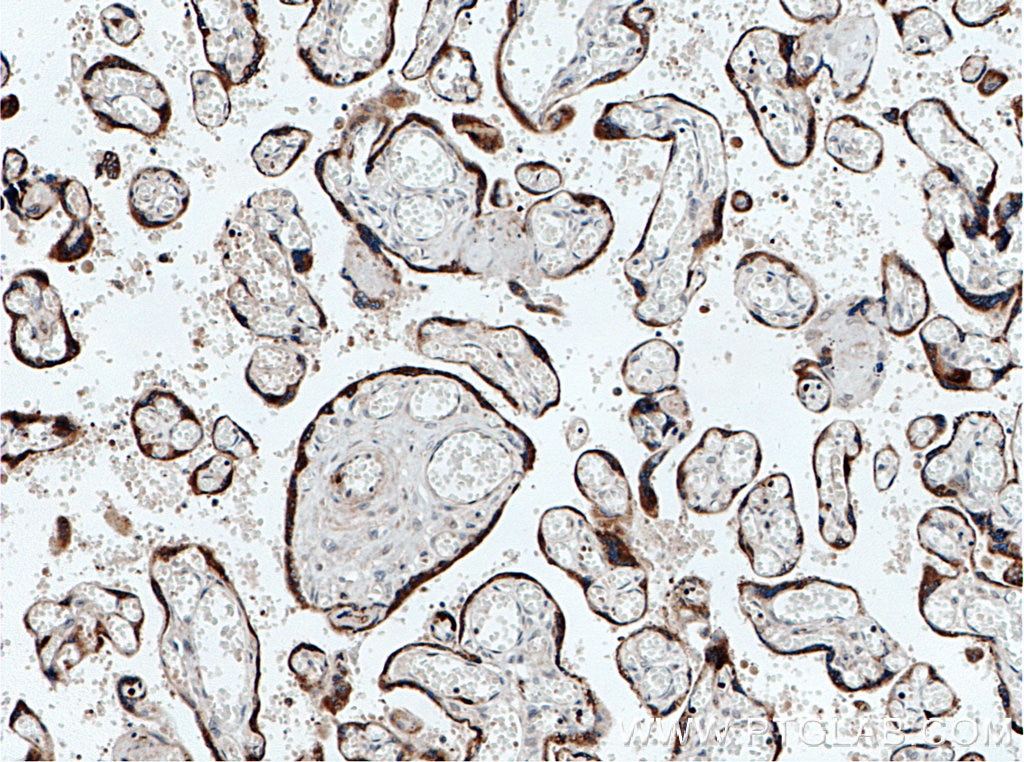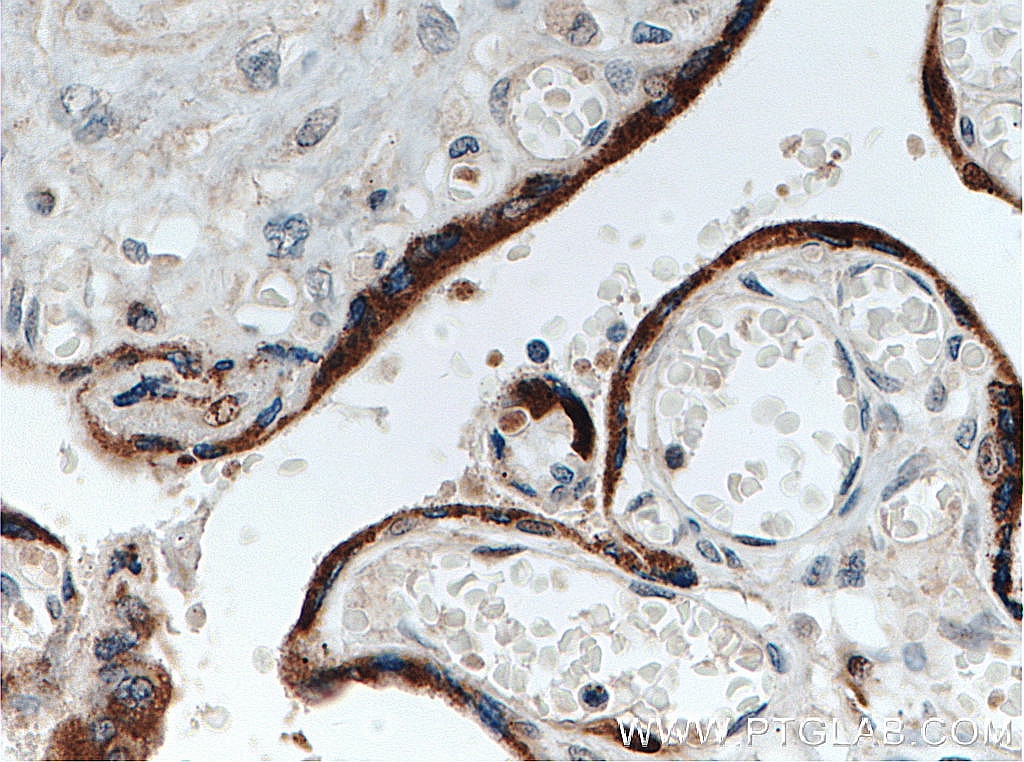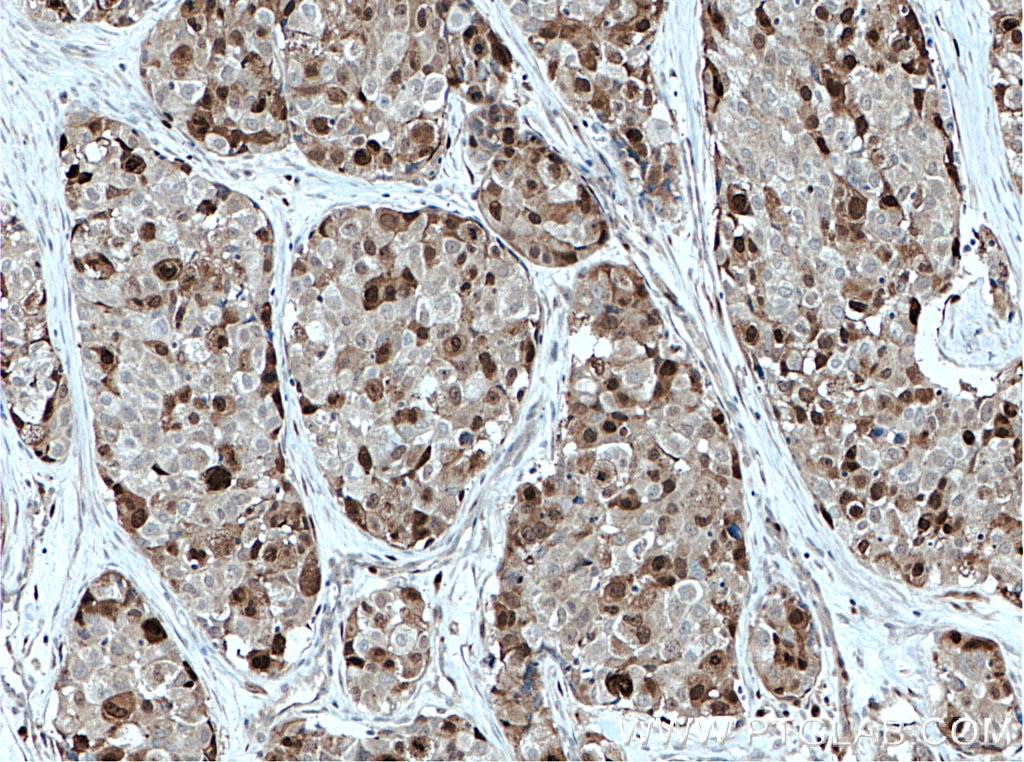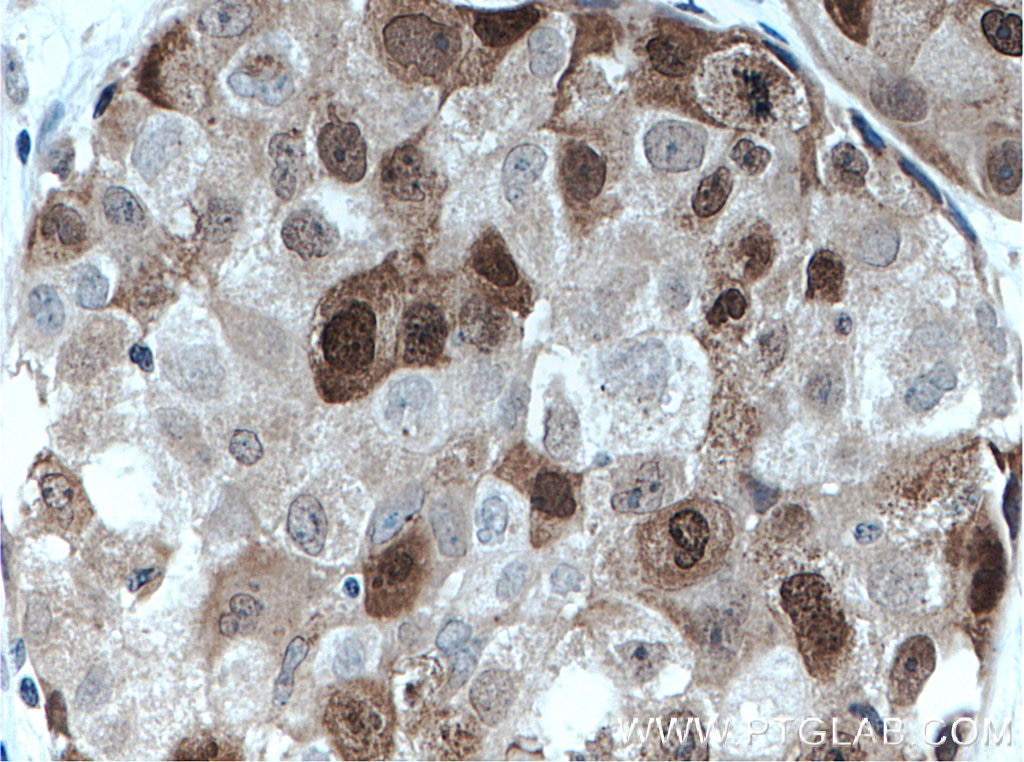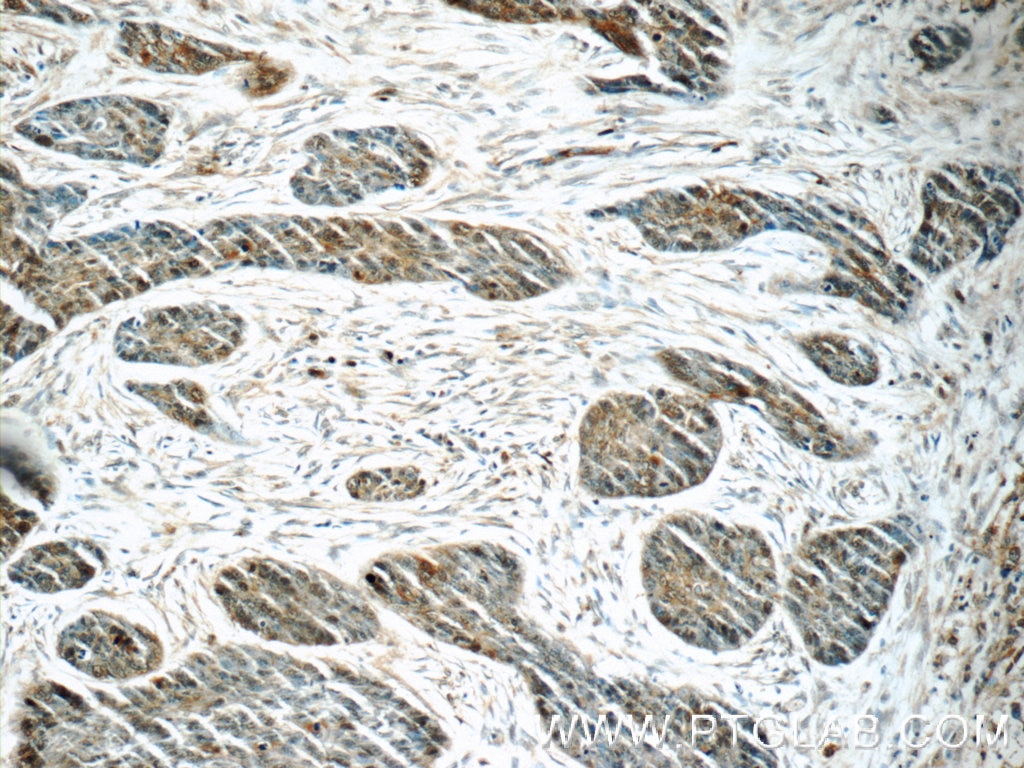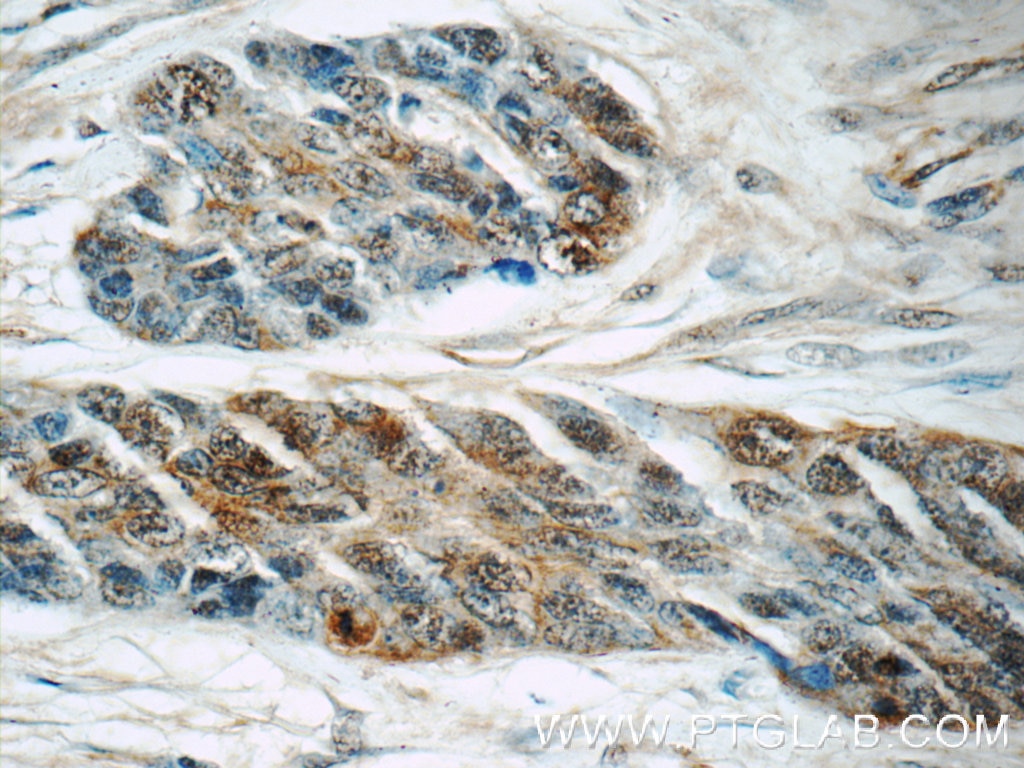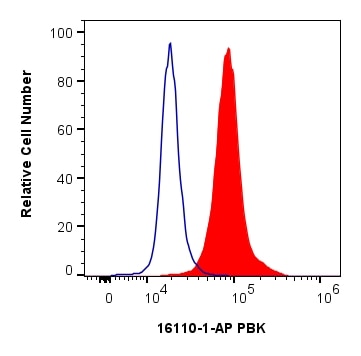- Phare
- Validé par KD/KO
Anticorps Polyclonal de lapin anti-PBK/SPK
PBK/SPK Polyclonal Antibody for WB, IHC, FC (Intra), ELISA
Hôte / Isotype
Lapin / IgG
Réactivité testée
Humain, rat, souris
Applications
WB, IHC, IF, FC (Intra), IP, CoIP, ELISA
Conjugaison
Non conjugué
N° de cat : 16110-1-AP
Synonymes
Galerie de données de validation
Applications testées
| Résultats positifs en WB | cellules HeLa, cellules Jurkat, cellules NIH/3T3, tissu ovarien de souris, tissu testiculaire de rat, tissu testiculaire de souris |
| Résultats positifs en IHC | tissu placentaire humain, tissu de cancer de la peau humain, tissu de cancer du poumon humain il est suggéré de démasquer l'antigène avec un tampon de TE buffer pH 9.0; (*) À défaut, 'le démasquage de l'antigène peut être 'effectué avec un tampon citrate pH 6,0. |
| Résultats positifs en FC (Intra) | cellules HepG2, |
Dilution recommandée
| Application | Dilution |
|---|---|
| Western Blot (WB) | WB : 1:3000-1:10000 |
| Immunohistochimie (IHC) | IHC : 1:50-1:500 |
| Flow Cytometry (FC) (INTRA) | FC (INTRA) : 0.80 ug per 10^6 cells in a 100 µl suspension |
| It is recommended that this reagent should be titrated in each testing system to obtain optimal results. | |
| Sample-dependent, check data in validation data gallery | |
Applications publiées
| KD/KO | See 3 publications below |
| WB | See 7 publications below |
| IHC | See 3 publications below |
| IF | See 3 publications below |
| IP | See 2 publications below |
| CoIP | See 1 publications below |
Informations sur le produit
16110-1-AP cible PBK/SPK dans les applications de WB, IHC, IF, FC (Intra), IP, CoIP, ELISA et montre une réactivité avec des échantillons Humain, rat, souris
| Réactivité | Humain, rat, souris |
| Réactivité citée | rat, Humain, souris |
| Hôte / Isotype | Lapin / IgG |
| Clonalité | Polyclonal |
| Type | Anticorps |
| Immunogène | PBK/SPK Protéine recombinante Ag9033 |
| Nom complet | PDZ binding kinase |
| Masse moléculaire calculée | 322 aa, 36 kDa |
| Poids moléculaire observé | 36-40 kDa |
| Numéro d’acquisition GenBank | BC015191 |
| Symbole du gène | PBK |
| Identification du gène (NCBI) | 55872 |
| Conjugaison | Non conjugué |
| Forme | Liquide |
| Méthode de purification | Purification par affinité contre l'antigène |
| Tampon de stockage | PBS with 0.02% sodium azide and 50% glycerol |
| Conditions de stockage | Stocker à -20°C. Stable pendant un an après l'expédition. L'aliquotage n'est pas nécessaire pour le stockage à -20oC Les 20ul contiennent 0,1% de BSA. |
Informations générales
PBK(PDZ-binding kinase) is also named as TOPK, CT84, Nori-3, SPK and belongs to the MAP kinase kinase subfamily. PBK may have a role in the regulation of cellular proliferation and progression of the cell cycle. It has a characteristic cdc2ycyclin B phosphorylation site(SyT-P-X-KyR) at its N terminus,which is conserved across species, and it is phosphorylated in a cell cycle-dependent manner at mitosis, and that this phosphorylation is required for its activation(PMID:10779557).
Protocole
| Product Specific Protocols | |
|---|---|
| WB protocol for PBK/SPK antibody 16110-1-AP | Download protocol |
| IHC protocol for PBK/SPK antibody 16110-1-AP | Download protocol |
| Standard Protocols | |
|---|---|
| Click here to view our Standard Protocols |
Publications
| Species | Application | Title |
|---|---|---|
Genomics Proteomics Bioinformatics Specific Regulation of m6A by SRSF7 Promotes the Progression of Glioblastoma. | ||
Invest Ophthalmol Vis Sci Single-Cell Transcriptomics Reveals Cellular Heterogeneity and Complex Cell-Cell Communication Networks in the Mouse Cornea | ||
Biomolecules Identification of a Fibroblast-Related Prognostic Model in Glioma Based on Bioinformatics Methods | ||
Invest Ophthalmol Vis Sci Single-Cell RNA Transcriptome Helps Define the Limbal/Corneal Epithelial Stem/Early Transit Amplifying Cells and How Autophagy Affects This Population.
| ||
Front Endocrinol (Lausanne) PBK/TOPK Inhibitor Suppresses the Progression of Prolactinomas. |
